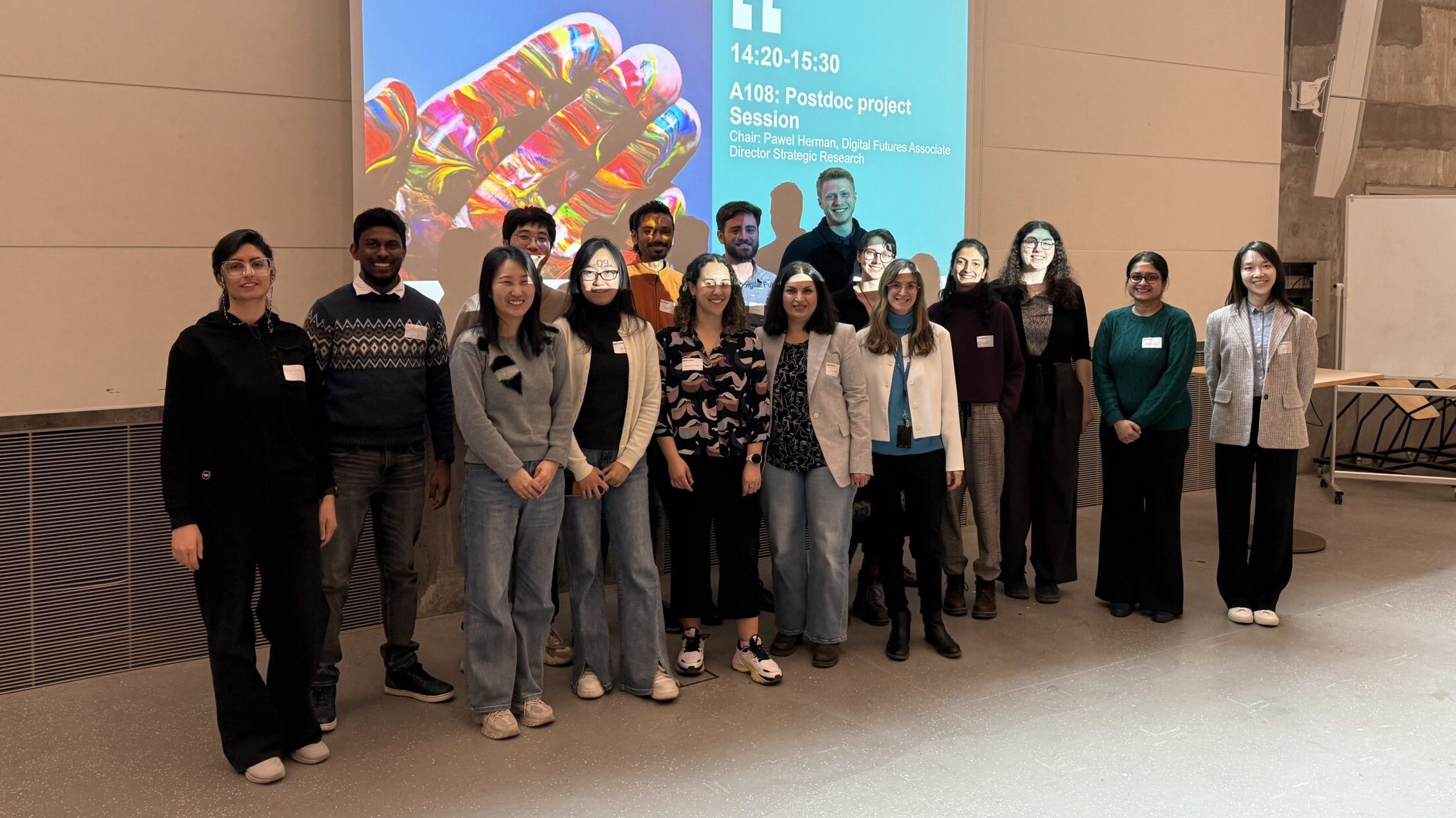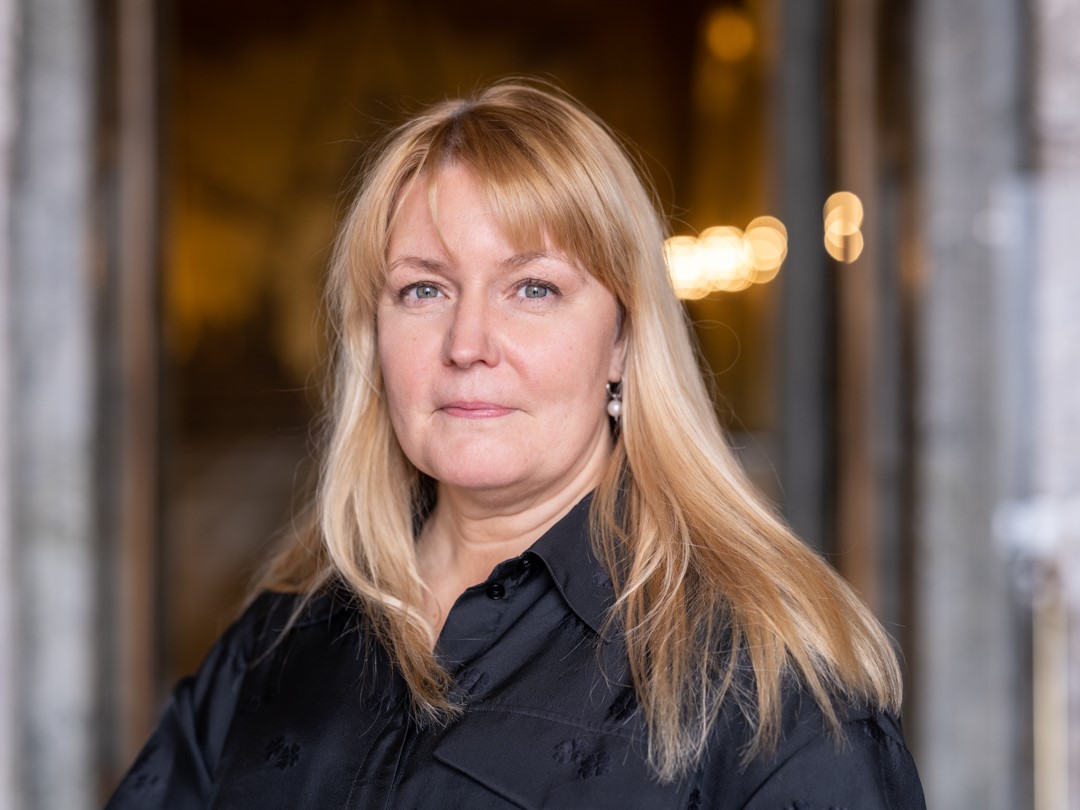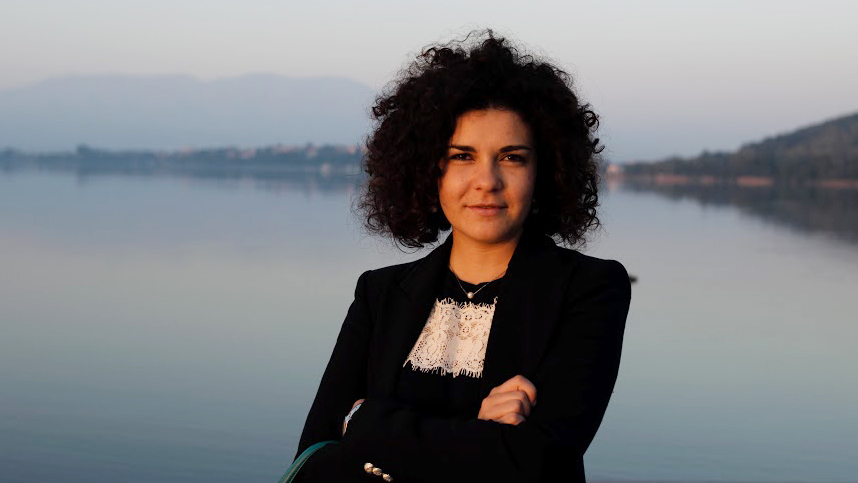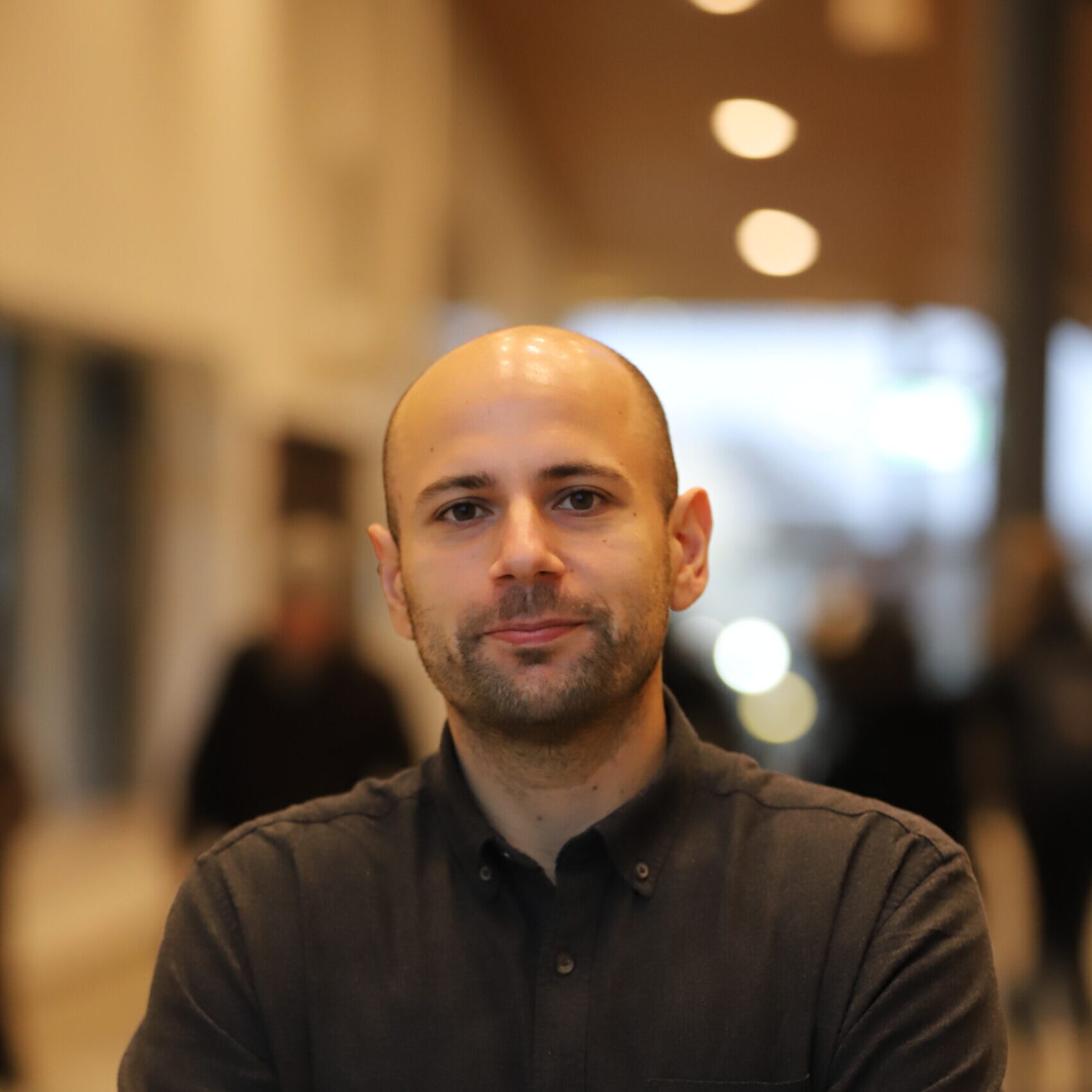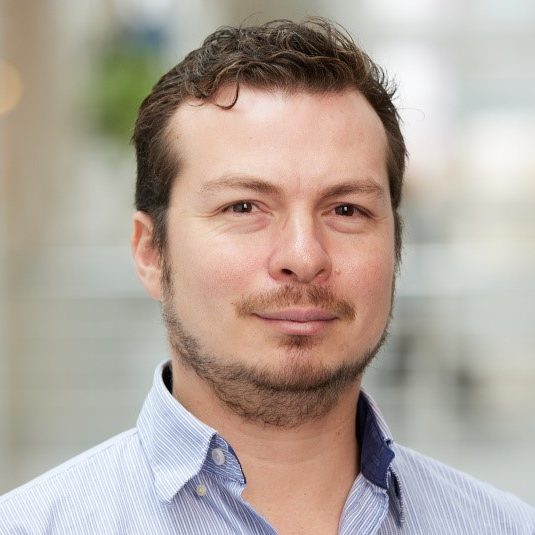On April 9, 2025, the Digital Futures Open Research Day brought together a vibrant community of researchers, industry partners, and societal stakeholders at KTH’s main campus in Stockholm. Hosted at the Architecture School building and Digital Futures hub, the event showcased the breadth and depth of research driving digital transformation in Sweden and beyond.
“The Open Research Day 2025 showcased the breadth and depth of innovation across Digital Futures,” says the program responsible Yifang Ban, Associate Director for Dissemination and Impact at Digital Futures. “With a full-day program featuring 80 research presentations and two thought-provoking panel discussions, the event highlighted the multidisciplinary nature of Digital Futures. The strong engagement across academia, industry, and the public sector reflects our commitment to shaping impactful digital futures together.”
From human-robot interaction and AI-driven healthcare to 6G networks and smart infrastructure, the sessions featured a mix of collaborative impact projects, demonstration pilots, and research pairs — all designed to tackle real-world challenges. Postdoctoral researchers also took the stage in a rapid-pitch-session, presenting ideas that push the boundaries of emerging technologies.
Showcasing Collaboration and Impact
The day started with a warm welcome from Karl H. Johansson, Director of Digital Futures, who set the stage for a series of insightful sessions. The morning featured parallel sessions on topics such as “Robots and People” and “Smart Mobility”. These sessions included lightning talks covering projects like the development of real-time exoskeleton control systems and virtual reality micromobility simulators.
Mid-morning sessions dived into “Social AI” and “Transforming Education”, where discussions ranged from humanizing smart cities to leveraging conversational AI for cultural integration and language learning.
After a networking coffee break, the focus shifted to “AI for Environment” and “6G – Communication, Sensing, Computing, Biology, Digitalized Medicine”. Attendees explored topics including AI-based environmental monitoring and advancements in edge network security.
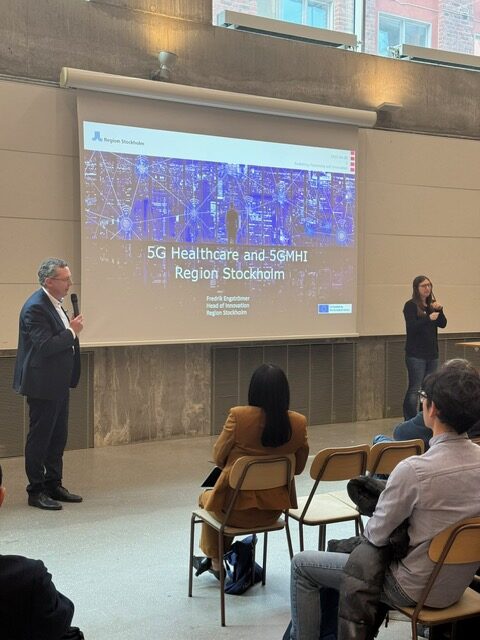
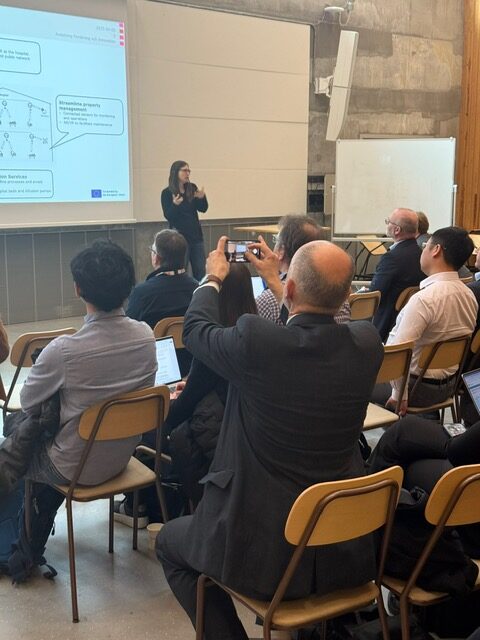
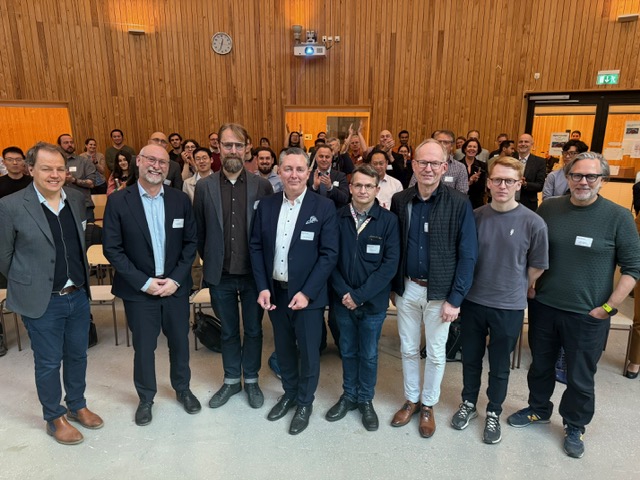
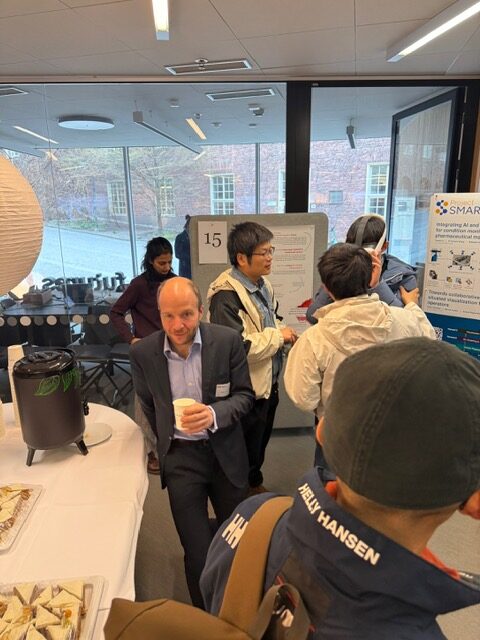
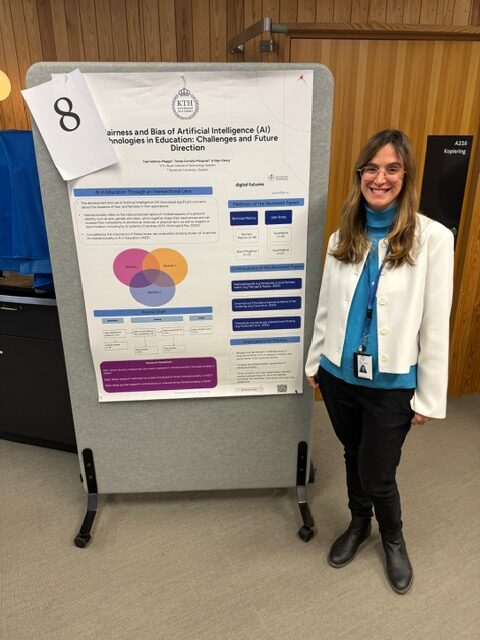
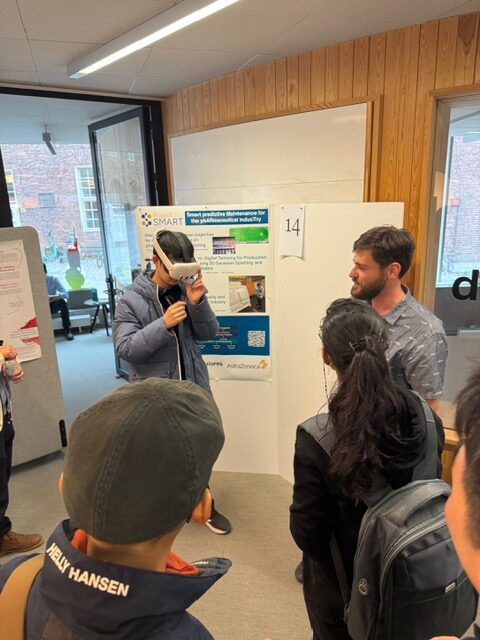

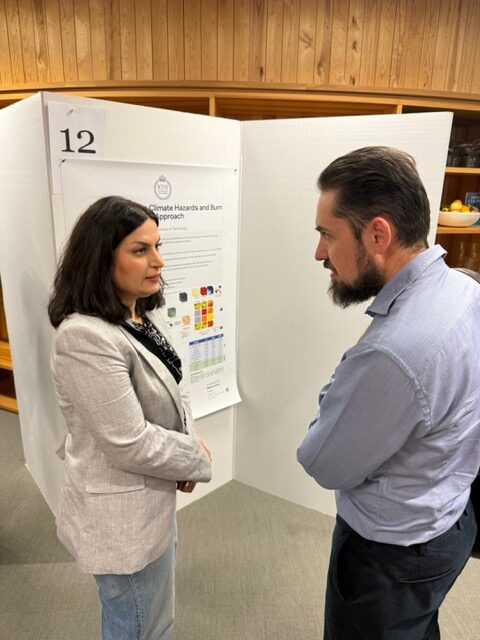
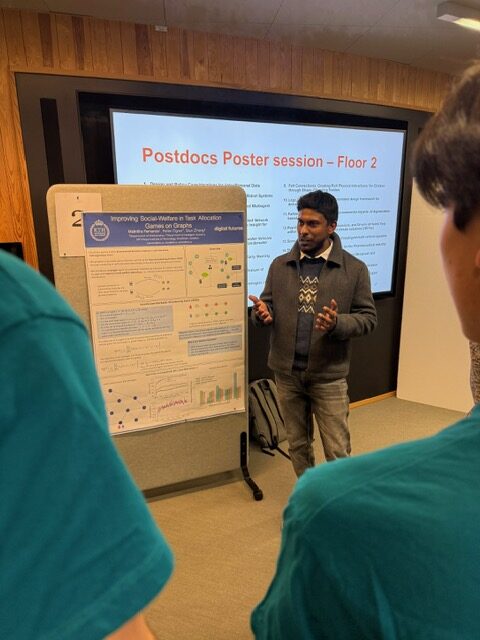
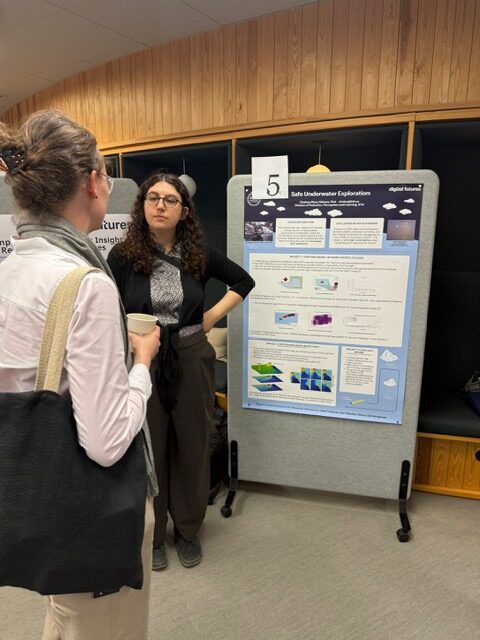

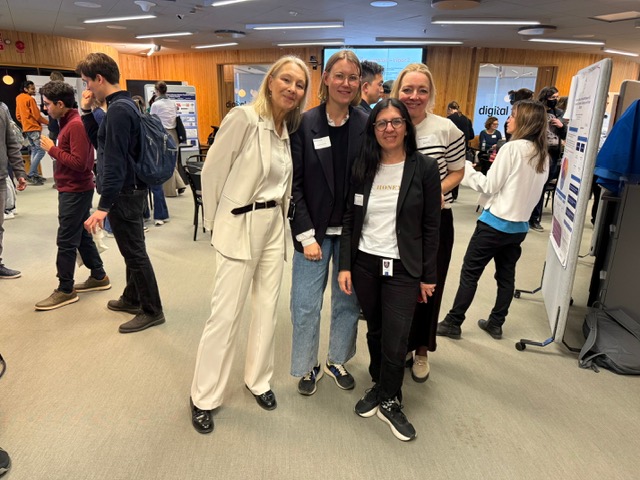
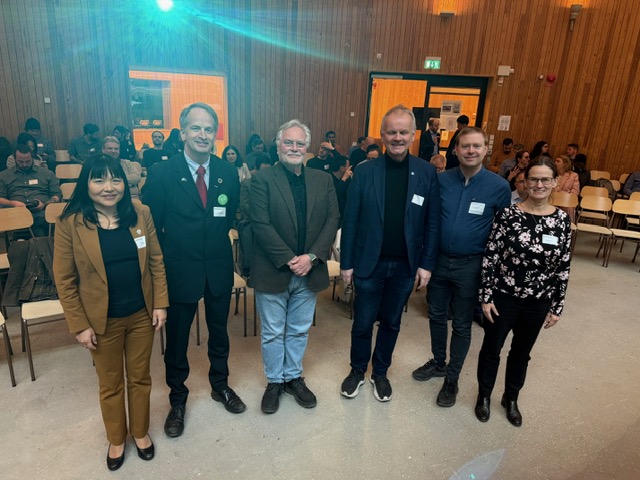
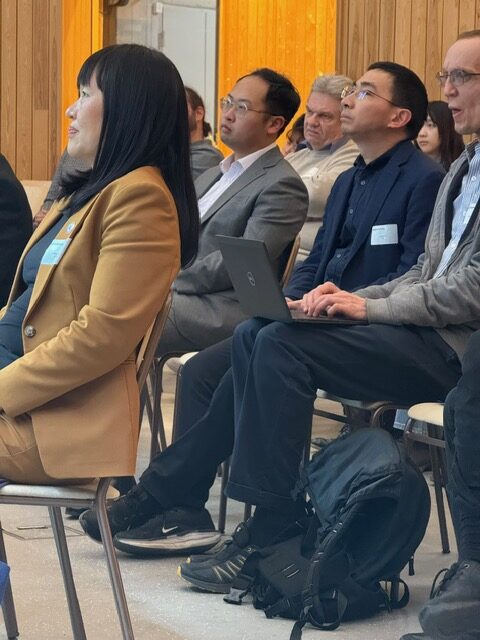
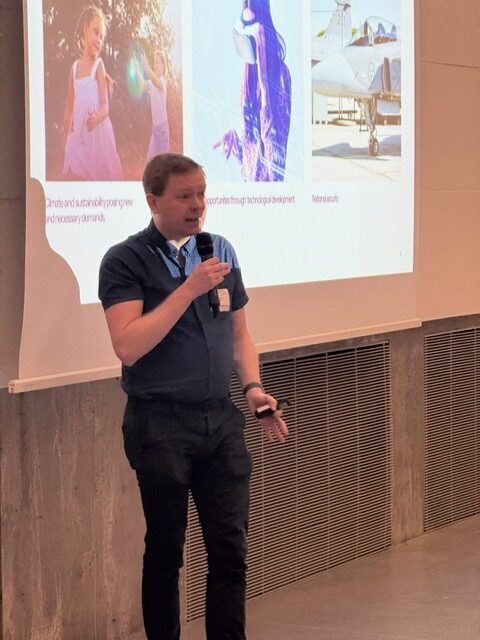
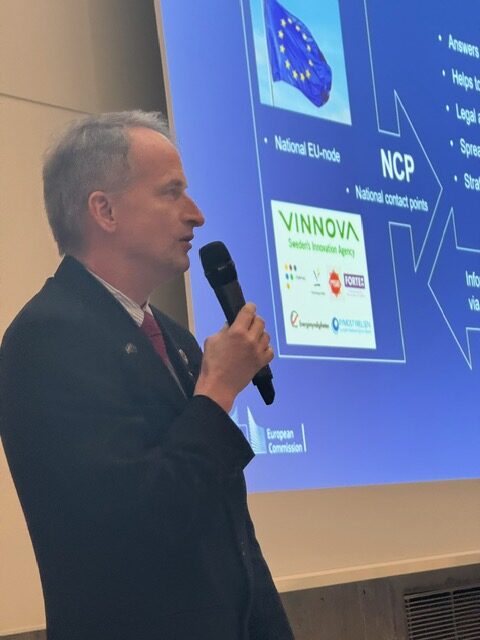
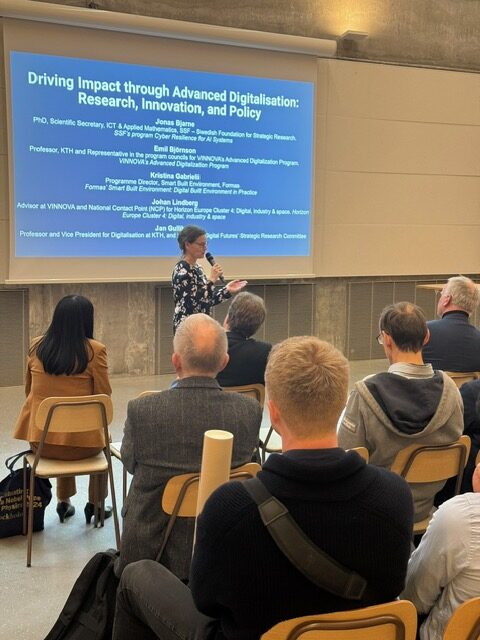
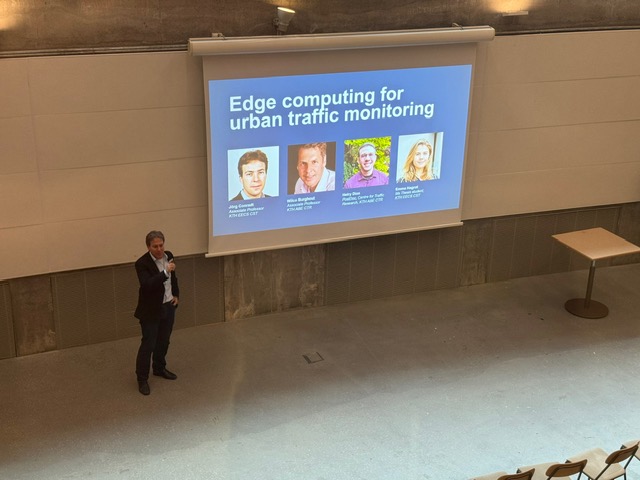
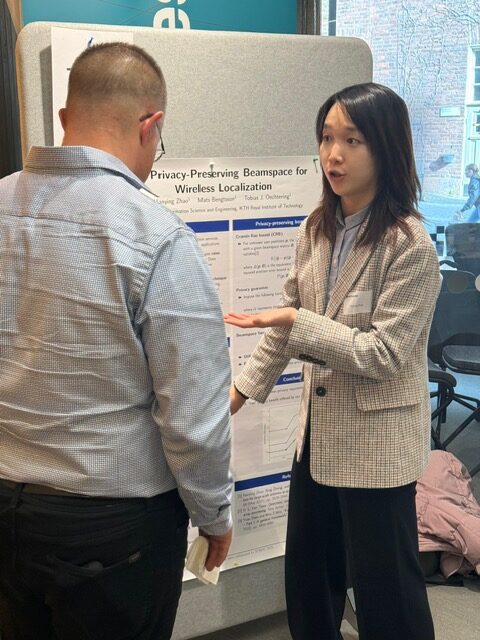
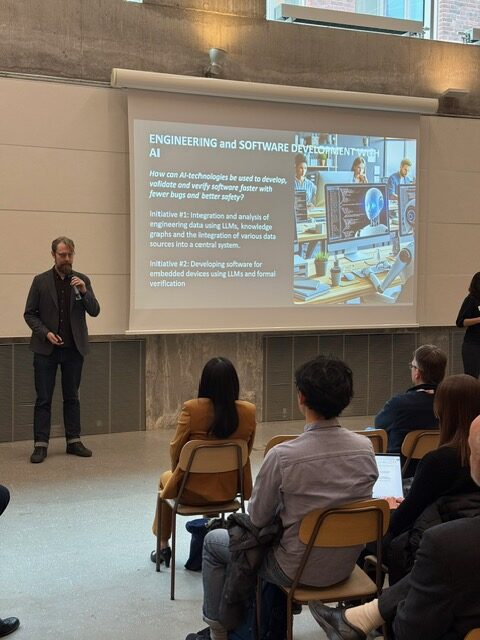
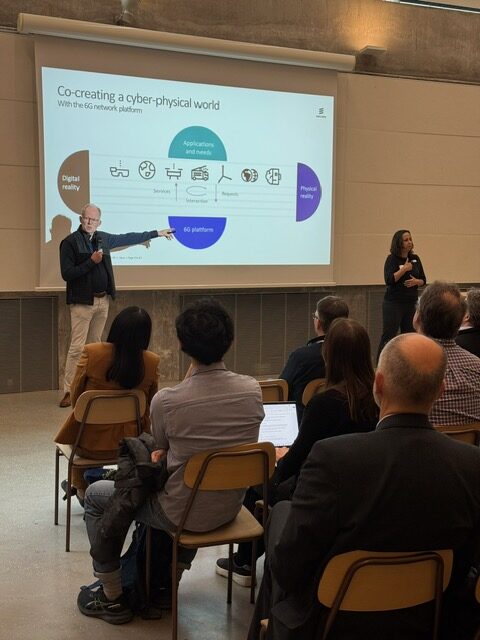

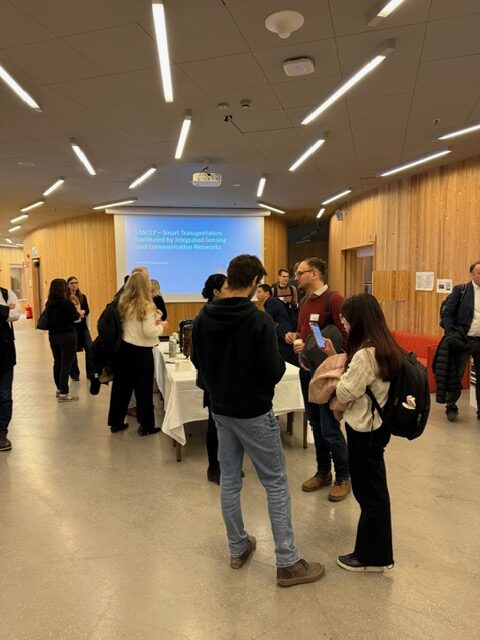

A highlight of the day was the Open Challenges from Partners session, chaired by Professor James Gross at KTH and Digital Futures Associate Director Partner Programme. This session offered a unique opportunity for academia and industry to engage in a direct and forward-looking dialogue, as industry and public sector representatives presented pressing digitalisation needs:
- Fredrik Engströmer, Region Stockholm – 5G Healthcare
- Robert Svebeck, Region Stockholm – Evaluating Language Models in Swedish Clinical Context and Redefining Anonymization in Healthcare Data
- Andreas Säfström, City of Stockholm – Nudging in the City’s Environmental Zone
- Magnus Frodigh, Ericsson – Increasing Resilience in Networks and Exploring Digital Representation
- Ulrik Janusson, Scania – Engineering and Software Development with AI
- Anders Bergman, AstraZeneca – Digitalisation and Automation Challenges in Pharma Manufacturing
The session underscored the importance of bridging research and real-world application, showing how Digital Futures serves as a dynamic platform where industry and academia align on shared goals, from sustainable cities to next-gen healthcare and secure, connected infrastructure.
The afternoon sessions continued to highlight the diversity and depth of research at Digital Futures, with a strong focus on how digital technologies are reshaping essential aspects of society and infrastructure.
The theme “Digitalized Built Environment” was presented in two sessions. The first session showcased innovative approaches to making cities and infrastructure smarter, safer, and more sustainable. Projects addressed everything from smart water systems and predictive maintenance for wastewater infrastructure to real-time simulation of fluid dynamics and urban traffic noise modeling using passive data. These talks emphasized the importance of data-driven design and planning in shaping resilient, livable cities of the future.
Running in parallel, the “Digitalized Health Care” sessions were reflecting the growing role of AI in transforming healthcare. Presentations ranged from biodegradable pressure sensors for post-surgical monitoring, to AI-powered tools for asthma and colorectal cancer detection, as well as digital twins of the human neuromusculoskeletal system for personalized neuro-rehabilitation. These projects highlighted how interdisciplinary research is advancing diagnostics, patient care, and medical technologies.
The day culminated in a deep dive into “Smart Society & Digitalized Industry”, also split across two sessions. Talks explored how digitalization is driving innovation and sustainability across sectors, with projects tackling environmental life cycle impacts of digital tech, cybersecurity in vehicle software, edge computing for traffic monitoring, and shared mixed reality cultural experiences. These sessions underscored the collaborative nature of digital transformation, requiring expertise from engineering, data science, public policy, and beyond.
Across all sessions, a clear thread emerged: collaboration across sectors and disciplines is vital to turning research into real-world solutions.
Driving the Agenda Forward
The event culminated in a high-level panel discussion titled Driving Impact through Advanced Digitalisation: Research, Innovation, and Policy, moderated by Professor Yifang Ban (KTH). The panel brought together influential voices from Sweden’s innovation ecosystem:
- Jonas Bjarne, PhD, Scientific Secretary, ICT & Applied Mathematics, SSF – Cyber Resilience for AI Systems
- Emil Björnson, Professor at KTH – Representative in the program councils for VINNOVA’s Advanced Digitalization Program
- Kristina Gabrielii, Programme Director, Smart Built Environment, Formas – Smart Built Environment: Digital Built Environment in Practice
- Johan Lindberg, Advisor at VINNOVA – National Contact Point (NCP) for Horizon Europe Cluster 4: Digital, Industry & Space
- Jan Gulliksen, Professor at KTH – Former Vice President for Digitalisation and Member of the Digital Futures Strategic Research Committee
Together, the panel underscored the urgency and opportunity of strategically investing in digitalisation that is not only technologically advanced, but also ethically grounded and societally beneficial.
Celebrating Emerging Talent
This year’s Best Poster Awards went to three outstanding postdoctoral researchers for their contributions to innovative research:
- Jonatan Langley – Comprehensive Network Insight for Resilient Infrastructures
- Chelsea Sidrane – Risk Aware Planning and Control for Autonomous Underwater Vehicles
- Zhiqi Tang – Sensory-based Hierarchical Control of Intelligent Multi-Vehicle Systems
Behind the Scenes
The event program schedule was put together by Yifang Ban, Associate Director Dissemination and Impact at Digital Futures and organized by the Digital Futures Operations Team: Ulrika Larsson, Claudia Enciso, Vendela Hasselberg, and Johanna Gavefalk – supported by great student helpers – all ensuring everything from logistics to engagement ran smoothly throughout the day.
Thank you all for participating, presenting and contributing to the Open Research Day 2025!

